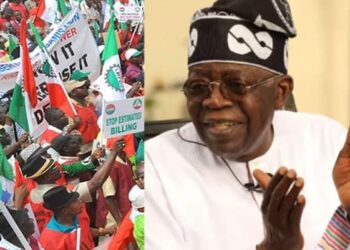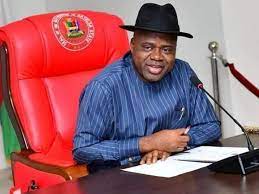As results of political parties’ primaries began trickling from across the states, it was evident that over a hundred members of the current assembly, 9th House of Representatives would not be coming back after losing their respective return bids. JOSHUA EGBODO writes on the perennial recurring decimal.
An age long experience?
Over the years, especially from the post-1999 return of democratic governance era, there have been repeated high rate of turnover of lawmakers in the National Assembly every election year, with the worst hit being the House of Representatives.
A check of the most recent past, the 8th assembly showed that less than 140 members of the House presided over by Yakubu Dogara, got re-elected in 2019 with majority of members coming as freshers into the Green Chamber, a development that got a lot of experts worried, especially when juxtaposed with developed democracies where lawmakers stay for several terms in office, and help the legislatures based on their experiences and institutional memories.
Results of the just concluded primaries of the various political parties as they relate to membership of the House of Representatives have so far shown that over a hundred members, about 70 percent of the 360-member house may not be back in the green chamber. A good number of the stock include some of the most experienced. Fears were also that the number may increase after the general election, as even those with their tickets well grabbed may lose at the polls.
For those who may be moving to the upper chamber, if they win in their bids, it is a considered opinion of many that theirs may not be out of place, since their wealth of experience will still be useful within the parliamentary circle.
Current development
As it were, those affected belong to the two major political parties; the ruling All Progressives Congress (APC), and the leading opposition Peoples Democratic Party (PDP).
However, reports suggested that a good number of the members who lost in the concluded process have defected to alternative political parties with a view to finding a chance of returning to the House.
Principal officers who from all indications, would not be back after the 2023 general polls include Deputy Minority Leader, Toby Okechukwu (PDP),and Majority Whip, Mohammed Tahir Monguno (APC). While Okechukwu lost his ticket on his return bid, Monguno has secure a ticket to move to the Senate. There are those contested for governorship of their states, some lost and won, there denying them any chance of coming back to the House.
Unlike the PDP, all the principal officers of the APC in the House got their return tickets, and these include Speaker Femi Gbajabiamila, Majority Leader Alhassan Ado Doguwa (Kano), Peter Akpatason (Edo), Deputy Chief Whip Nkiruka Onyejeocha (Abia), and Chief Whip Mohammed Mongunu who intended to to move to Senate, and equally got the ticket for his political party.
Gbajabiamila laments
When the House was back in session after the primary elections last Tuesday, Speaker Femi Gbajabiamila could not hid his sad feelings, as he spoke extensively on failure of such a large number of his colleagues to secure return tickets, blaming the development however, more on the failure to see through, the move by parliament to make direct primary compulsory for all political parties as mode of selecting candidates for elective offices.
A noted error that denied elected office holders as statutory delegates for their parties, which the National Assembly attempted to correct in a hurried alteration to the Electoral Act before commencement of the primaries was not attended to by President Muhammadu Buhari.
Gbajabiamila expressed pains over the manner the primary elections of the political parties were conducted. “Honourable colleagues, it is rather unfortunate that the process went the way it went. I make bold to say here that the legislature has once again suffered losses. The loss really is not for members who lost, it is a loss to democracy, to the institution and to the country.
“If it means anything, I know and I am aware that many of our members did not lose their primaries because they were rejected by their constituents. Many of our members lost because of the process, the process which we foresaw in the House of Representatives. The delegate system which unfortunately is not what a delegate system is supposed to be”, the Speaker said as he recalled failed efforts of the parliament towards ensuring the use of direct primaries for selecting of candidates for elective offices.
Welcoming members of the House back last Tuesday, Gbajabiamila also promised to ensure that the planned reform of the process is revisited in the next few weeks. “Honourable colleagues, many of our members lost because they were not even given a fair shot. We have good legislators, both here in the chambers and back home, who are probably not coming back because of this same process.
“When we fought for direct primaries in this house, we knew exactly what we were saying. It pains me very deeply, that the process has gone the way it has gone. We will continue to push and continue to fight for our members, for democracy, for the institution and this country.
“I have experienced political loss. And I can speak to the feelings of loss and disappointment that arise as a result. From that experience, I wish to share with you the everlasting truth that none of us is defined by the outcome of any election at any one time.
“What defines us before God and our fellow men is what we do in the time we have in public office and on earth. We are judged on earth and after by the work of our hands, quality of our service, the content of our character and passion of our convictions. These are the things that matter most and will count in the fullness of time.
“Therefore, I enjoin you all to set aside your feelings about recent electoral experiences to focus on serving the mandate we still have. Whereas in the past, the start of the electoral calendar marked the end of governance as a priority, that will not be the case in this 9th Assembly. Our term in office does not end till next year. Until the moment it does, until the last minute of the final hour, we will do the people’s work and serve their interests. That is the oath we swore and the commitment we will live up to, come what may”, he stated.
High turn over rate worrisome
As earlier stated, pundits have expressed worries over the number of freshens elected into the House after every general election, leaving such people to learn the ropes from the scratch.
The tempo of legislative activities of the House, which is expected to wind down for the year 2022 in July may be slow due to poor motivation on the side of those who already know their fate of not returning, as was usually observed, Speaker Gbajabiamila however appealed against such. “Between now and the general elections, we have to resolve to devote our minds and energy to the pressing concerns of governance. This is what the people who sent us here expect of us at this time when we have various significant challenges to contend with”, he noted.
Whether this message will sink and heeded to is another ball game, especially as the general election beckons.




